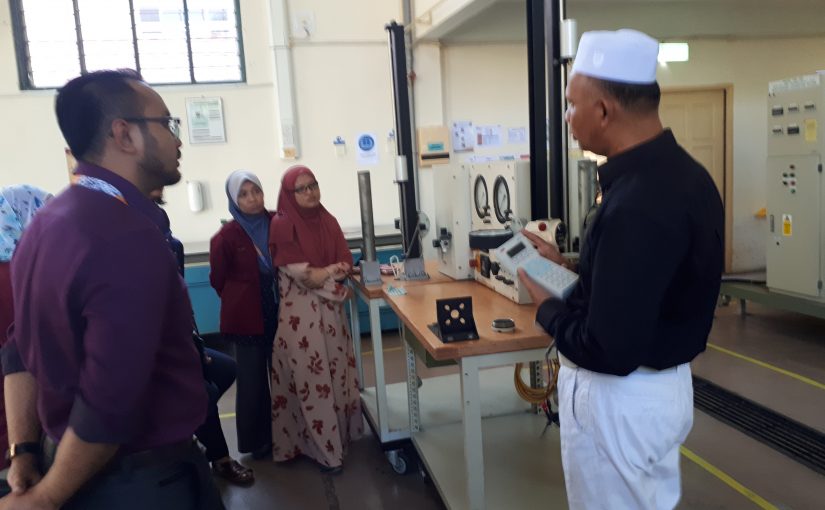BASIC INSTRUMENTATION FOR NON-INSTRUMENT PERSONNEL COURSE
Course Description
DURATION
21 hours (Three (3) days)
TARGET GROUP
Instrumentation and Control Engineers and Technicians, Plant Operators, Operation Engineers, Process and Utility Supervisors, and Technical Supervisory personnel involved in Industrial Process Measurement and Control. No specific prerequisite training or experience required for registration.
TARGETED INDUSTRY/INDUSTRIES
Oil and gas industries, power plant, petrochemical plant, food industries, pump oil plant and almost all plant need instrument to sense, to measure, to record, to control and some other reason like safety and soon. All this need well understanding about instrumentation.
CERTIFICATION
This course can be certified for continuing professional development program, for example program by board engineers Malaysia, TVET, Malaysian Skill Certificate and can be considered for instrument competency certificate.
COURSE OVERVIEW
The quality or performance of a plant control and plant safety is dependent on the quality of measurement and final control elements. The program was design for five days and will covers the working knowledge of basic instrumentation, basic control valve, fundamental of process control, plant safety , equipment operation , selection and installation and also their effect on process control. The participants will be exposed on how to control the processes using process simulator.
COURSE OBJECTIVE
The objective of the course is p to provide more understanding about instrumentation to the instrument engineers, process engineers, instrument tech and others plant personnel. By understanding all aspect about instrumentation, measurement, control, safety, trending and other thing about plant will be comprehensive.
COURSE OUTCOMES
At the end of the course, the participants should be able to:
- Interpret basic Industrial instrumentation.
- Read and locate PFD, P&ID, and loop drawing.
- Interpret measurement terminology
- Identify the instrumentation used in process control.
- Compare the methods and devices used in temperature, pressure, level, flow measurement
- Select which types of final control elements used in process control.
- Understand the operational of Control Valves.
- Understand the Process measurement and their effect on stability system.
- Understand why a systematic approach to troubleshooting is most effective
- Understand the basic process control.
- Tune a simple single loop and multiple loops.
- Identify the common causes of sensor, transmitter, controller, and final control element problems
- Understand the operation of pneumatic and electronic loops
- Understand the Process safety and instrumentation
Introduction to Distributed Control System
TRAINING METHODOLOGY
- Lecture
- Classroom discussions
- Short video presentation
- Case study
COURSE CONTENTS
Purpose of Instrumentation
Instrumentation Documents
- Process Flow Diagram
- Piping & Instrumentation Drawing
- Instrumentation Drawing
Industrial Measurement Systems:
- Overview,
- Sensor Selection and Characteristics,
- Transmitters,
- Smart Transmitters
- Instrumentation
Control Valve
- Overview
- Types
- Operational
- Basic maintenance
Pressure Measurements:
- Concepts,
- Various pressure reading
- Differential Pressure Measurement
Level Measurement:
- Concepts,
- Hydrostatic Head Level Measurement,
- Capacitance Level Measurement,
- Ultrasonic Level Measurement,
- By Weight
Flow Measurement:
- Fluid Fundamentals,
- Methods and Concepts,
- Differential Head Flow Measurement,
- Velocity Flow Measurement Devices,
- Mass Flowmeters
Temperature Measurement:
- Concepts,
- Thermometers,
- Thermocouples,
- RTDs & Thermistors,
- Temperature Transmitters
Approaches to Troubleshooting:
- Purpose of Troubleshooting,
- Reasons for Troubleshooting Equipment History,
- Logical Analysis
PID process control.
- Process and controller characteristics.
- Feedback and stability
- PID tuning
- Enhance PID control.
Process safety and instrumentation
- Basic ISA
- Classified areas and electrical safety
Others
- DCS system components
- DCS supervision vs. Control
- DCS systems concepts
- Human Machine Interface
- DCS architecture
- Trends in SCADA / DCS

